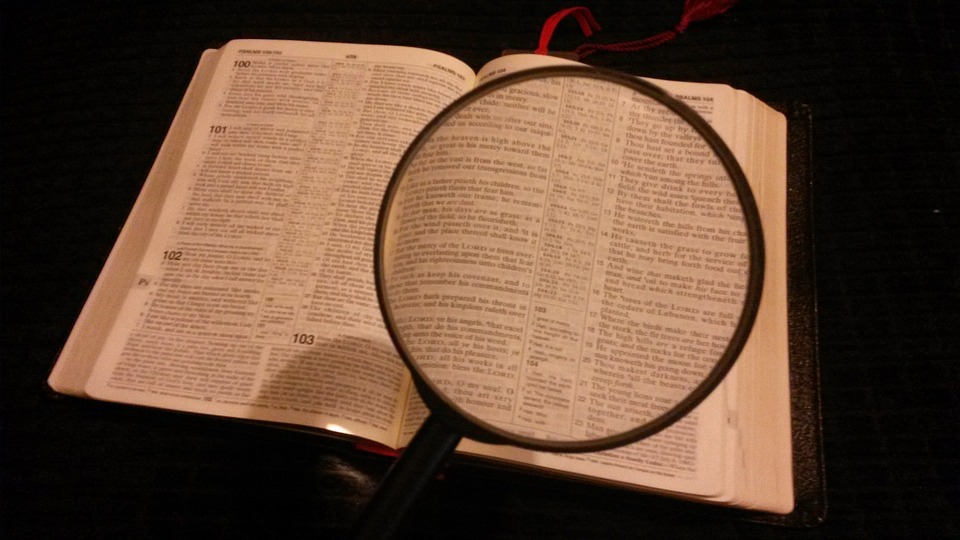Take the Next Step With Courage
Moses died at age 120 following decades of faithful service to God. That left his successor, Joshua, and the tribes of Israel staring at the Jordan River and the Promised Land beyond it. God encouraged Israel’s new leader.
” ‘Moses My servant is dead. Now therefore, arise, go over this Jordan, you and all this people, to the land which I am giving to them…’ ” (Joshua 1:2, NKJV).

“The Children of Israel Crossing the Jordan” by Benjamin West.
Joshua was to lead his nation to occupy a tract of land whose inhabitants didn’t want to relinquish it. What a gargantuan task. God asked Joshua a question, then made him a promise.
” ‘Have I not commanded you? Be strong and of good courage; do not be afraid, nor be dismayed, for the Lord your God is with you wherever you go’ ” (Joshua 1:9, NKJV).
Today, we find ourselves staring at assignments or undertakings that overwhelm us. The tasks ahead of each of us differ from Joshua’s mission, but the same God oversees our future. The same God is ready to guide our steps.
God Plans Certain Steps for Us
Joshua needed courage. He’d taken thousands of God-guided steps up to that point. He needed to trust God to keep leading him forward with favor.
Years later, David would state from experience, “The Lord directs the steps of the godly. He delights in every detail of their lives” (Psalm 37:23, NLT).
Throughout the Bible, this truth is evident: God assigns His servants jobs we can’t accomplish without Him.
The steps God plans for us are all part of His big plan. Billions of obedient followers were and are needed to carry it out. We don’t have to see all the parts of the puzzle. Like Joshua, God wants us to be courageous in taking each next step, no matter how small or large, as He makes it real to us.
God Prepares Us to Take the Steps
Joshua served well as Moses’ assistant. Step by step, he served God by serving Moses for most of the 40 years Israel traveled through the wilderness.
Bit by bit, God prepared Joshua. His courage grew as he went. Only Joshua was allowed to be on part of Mt. Sinia while Moses experienced God’s presence at the top. Although not raised as a warrior, God dispatched Joshua to win a battle against Amalek. Joshua bravely stood for truth (along with Caleb) against the ten scouts who insisted Israel wouldn’t survive in the very land God had promised them.
Whatever steps God plans for us to take, He prepares us before we take them.
God Customizes Our Steps
Replacing Moses must have concerned Joshua. There’s no way he could have filled Moses’ sandals. But God didn’t call him to. Moses was Israel’s lawgiver and intercessor. Joshua would be Israel’s military leader. Moses’ phase of service ended at the Jordan River. Joshua’s service as a leader began there.
God calls us, not to be anyone else, only who we are. He gives us opportunities because we’re who He wants to use in a certain place at a certain time. It’s our time because He’s planned our steps and prepared us to take them.
When God leads us to a door and opens it, He’ll guide us step by step after we’ve walked through it.
“I will instruct you and teach you in the way you should go; I will counsel you with my eye upon you” (Psalm 32:8, ESV).
Are you ready for your next step? Be courageous! Move forward with God’s favor.
The road ahead:
- You can prepare for unknown future steps. To prepare for emergencies in the dark you stock up on flashlights. If the electricity in your home goes out or automotive trouble finds you stranded on the side of the road at night, a flashlight is your friend. But only if the flashlight contains up-to-date batteries. True readiness for any task begins, not with your skills or abilities, but with the condition of your heart. You’re ready for the next step as long as your spiritual batteries are up-to-date.
- Are you standing at a door God has led you to? Rather than seeing the enormity of the task, see the greatness of God. Dwell on the fact that He leads you. Dwell on the fact that He’s prepared you. Focus on a future He’s customized for you based on everything He’s developed in you up to now.
Further Fuel: Psalm 32:8; Proverbs 3:5-6.



 Thom Rainer, president of LifeWay Christian Resources, gives an incredible statistic in his book, The Unchurched Next Door. He says that as high as 82 percent of those who don’t attend church are ‘somewhat likely’ to if invited. If so, then what are we waiting for?
Thom Rainer, president of LifeWay Christian Resources, gives an incredible statistic in his book, The Unchurched Next Door. He says that as high as 82 percent of those who don’t attend church are ‘somewhat likely’ to if invited. If so, then what are we waiting for?


 While on earth Jesus often told His disciples and others not to fear. For the disciples, He addressed fearful moments during their training as stepping stones to greater spiritual growth. What things did Jesus mean when He said not to be afraid?
While on earth Jesus often told His disciples and others not to fear. For the disciples, He addressed fearful moments during their training as stepping stones to greater spiritual growth. What things did Jesus mean when He said not to be afraid?
